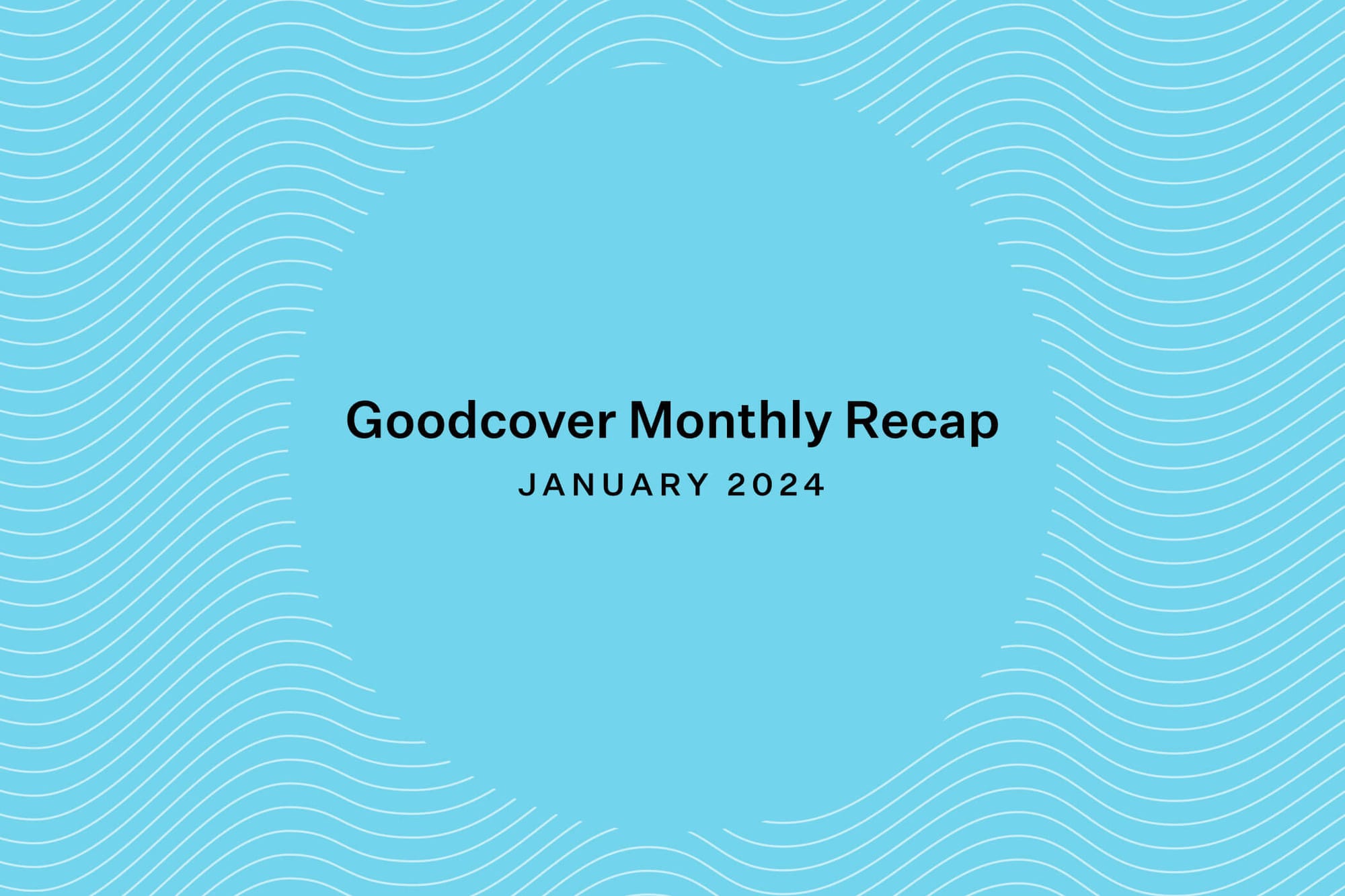Goodcover Monthly News Roundup | October 2023
1 Nov 2023 • 3 min read

Welcome to the Goodcover Monthly Roundup for October 2023.
Our monthly news roundup is here to help you stay informed on the latest stories in insurance and housing that can impact you. You can view our previous monthly recaps here.
Let's jump into news that caught our attention in October:
Americans are Rent-Burdened:
One in three Gen Z-ers now believe owning a home is an impossible feat in their lifetime, primarily due to the hurdle of saving for a down payment. Axios reports that 58% of renters 24 and younger spend more than 30% on the rent, classifying them as rent-burdened. The percentage of rent-burdened tenants aged 25 - 64 isn’t much better (45%), and 57% of renters 65+ find themselves in the same situation. In short: the rent is too damn high.
But Right Now, It’s Still Better to Rent:
Even given the increasing rent prices, a recent report by The Washington Post suggests there’s never been a worse time to buy instead of rent. They found that monthly payments on a $430,000 home with a 10% down payment have gone up 60% in the past three years – a stark contrast when compared to the 22% rise in rent over the same period of time. It may seem like existing homeowners benefit from this situation, but many homeowners find themselves stuck, unable to move or downsize, given the rising mortgage rates. And, while buying a home is increasingly challenging, the supply of homes available for rent isn’t as tight as expected. Fannie Mae predicts that apartment vacancies will reach 6.25% in 2024, above the average of 5.8% over the past 15 years. That’s good news for renters.Right now, renting is the smartest and most attractive option for people to find the most affordable and flexible option for themselves.
Just Be Careful with Your Security Deposit:
This month, VICE reported on the controversial rise of companies like Rhino, which markets itself as a “security deposit alternative.” Rhino offers renters, who may find the security deposit for a new place unaffordable, the option to pay a smaller fee each month instead. However, these fees are nonrefundable, and renters can end up paying more than their standard deposit over the time they rent. In addition, Rhino’s use of algorithms to determine pricing faced criticism for potentially violating fair credit reporting laws. At Goodcover, we’ve seen similar concerning trends in the finance industry before – fighting against those trends is why we exist as a company. We stand for fair and transparent finance for all, and we look forward to the day when renters get treated fairly by the industry.
Adapting to the Changing Climate:
Moving on to the insurance side of things, the impact of climate change on the insurance industry is undeniable. In 2022, the U.S. insurance industry paid $99 billion in weather-related claims, according to the New York Times. The increase in climate-related risk affects homeowners and renters across the country – it’s no longer just Florida or California. Instead, it’s reaching states like Massachusetts, Texas, Colorado, and even South Dakota, as natural disasters increasingly wreak havoc nationwide. As renters, it’s important to recognize the growing significance of climate-related risks. When a natural disaster strikes, renters can suffer damage to their personal property and even be temporarily displaced from their homes. Having Goodcover renters insurance can sometimes help in both of these scenarios (although earthquakes and floods aren’t covered – you’ll need separate policies for that). If you’re not a Goodcover Member, get a quote in under 90 seconds.
Thanks for reading. If you enjoyed this roundup, please check out more posts on our blog. Let us know what you'd like to learn more about in the next monthly recap. Follow us on Twitter and let us know.
See you next month.
-The Goodcover Team
Note: This post is for informational purposes; insurance regulation and coverage specifics vary by location and person. Check your policy for exact coverage information.
For additional questions, reach out to us – we’re happy to help.
More stories
Dan Di Spaltro • 7 Jul 2025 • 14 min read
TN Renters Insurance: Cost, Coverage & Top Providers
Team Goodcover • 31 Jan 2024 • 2 min read
Goodcover Monthly News Recap | January 2024
Team Goodcover • 3 Dec 2023 • 2 min read
Goodcover Monthly News Roundup | November 2023
Team Goodcover • 30 Sep 2023 • 2 min read
Goodcover Monthly News Roundup | September 2023
Team Goodcover • 1 Sep 2023 • 2 min read




